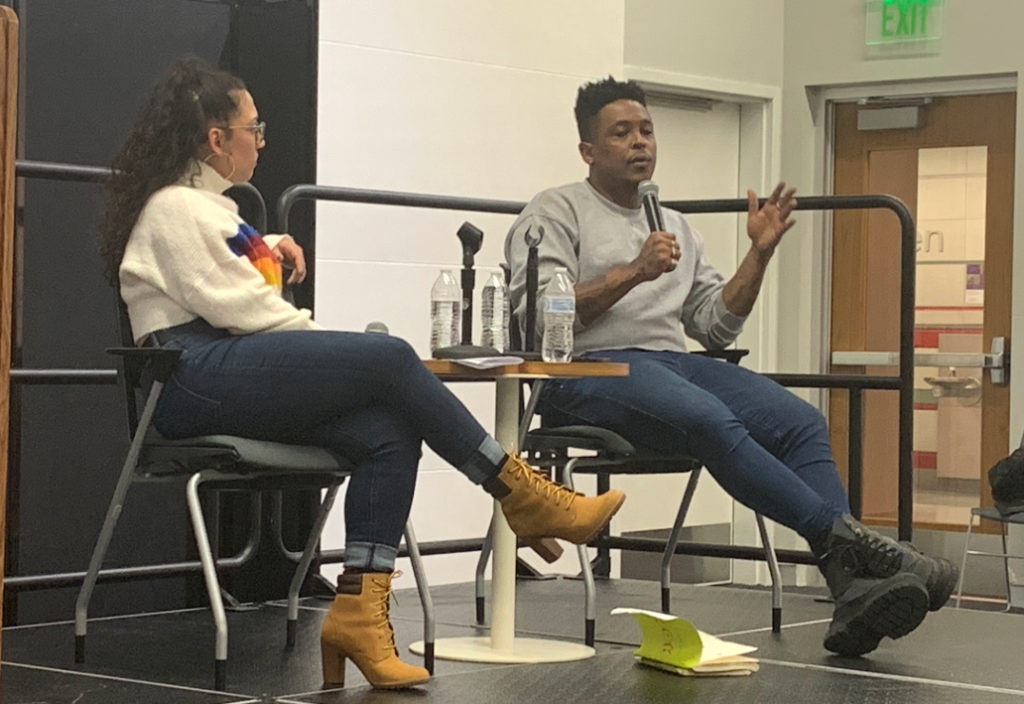Author Danez Smith performed poetry featured in their latest book Homie as part of the Wisconsin Book Festival at Central Library Monday night.
“The book is intimate, yes it’s for Black people, Queer people at the core … I can name everyone that this book is about and for. I can text them. I can miss them,” they said.
Smith, author of Insert Boy, Black Movie, and Don’t Call Us Dead published Homie through Graywolf Press in late January. Their poems reveal their search for joy and intimacy and grief after the loss of a close friend.
A lot of Smith’s poems referenced their most intimate relationships. They described writing poetry about friends as a love language. Smith often shared drafts they worked on with those they wrote poems about.
“A lot of my friends are artists, thank God, and those who aren’t are like ‘oh my God, you wrote a poem about me,’” they said.
Smith, based in Minneapolis, Minn., will continue touring as part of a promotional tour for their latest book. Upcoming stops include Wellesley, MA, Berkeley, CA, Fresno, CA, Ithaca, NY, and Bridgewater, MA. However, Smith said they never pass up an opportunity for a free trip to Madison, a place they refer to as home.
They spent their formative years in Madison, living here from age 17 to 23. Smith participated in the nation’s premier Hip Hop Arts scholarship program First Wave at the University of Wisconsin-Madison.
“It’s truly an honor to be here to support my friend for all the things you’ve accomplished from teenagehood to adulthood to beyond,” said Sofia Snow, Office of Multicultural Arts Initiatives (OMAI)/ First Wave Director and First Wave First Cohort Alumna.

They experienced the birth of the program together as part of the initial cohort almost 13 years ago. Snow performed a few poems of her own after current First Wave students Isha Camara and Nesha Ruther before giving the stage to Smith.
“One of the things I miss about First Wave is being able to be on stage with a bunch of people,” Smith said.
After reading, Smith and Snow launched into a Q&A where Smith answered questions ranging from their interest in writing plays to writing for the white gaze. Smith said they did not have an issue when thinking about the audience for this book. Instead, they said professors at UW-Madison empowered them to embrace every aspect of themself.
“There was no question that this super Black cannon that I was raised in wasn’t enough,” Smith said. “I don’t want to be anything else besides super Black and super Queer.”










